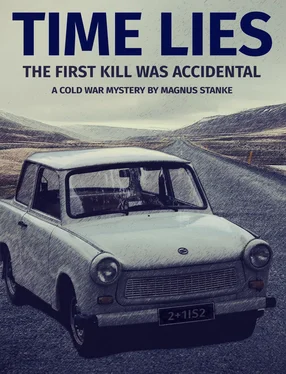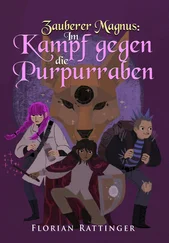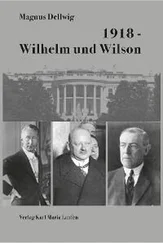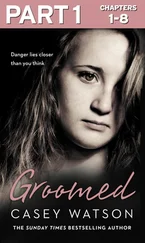Tobias liked to think that his – their – dad had once tried to be a loving father to him, when they were little boys. He had probably made an effort to treat his sons equally, tried to love them both the same, in theory at least. They used to get the same Christmas presents and the same weekly allowance, a pittance maybe, but it was all that Gerhardt could afford on his reduced income. Yet Tobias had known for a long time that his father’s acts of equality were just that — acts. When it came right down to it, Dad, like most people, preferred Albert over him.
When did it all go wrong? Born in 1949, a mere three minutes apart, Albert and Tobias looked, sounded and behaved identically, as interchangeable as only identical twins could aspire to be. For all intents and purposes they were the same person. People would forever ask who was who, and sometimes even their father didn’t know the answer. In one of Tobias’ earliest, most eagerly guarded memories, Albert stood at the top of the staircase, and Tobi wanted to sneak up from behind, push him with all his might and take over his beloved brother’s life when the real Albert broke his neck falling down the stairs.
If only their mother Tatjana had lived, things would have been different, of that Tobias was certain. Gerhardt never talked about her, and there were no photos in the house on the Ith where they grew up. With no maternal relatives to fill in the gaps, the boys only knew that Mum’s personal story was tightly enmeshed with the country’s post-war history.
After the great defeat in 1945, Germany had been awash with refugees, ethnic Germans who were expelled from the eastern countries they had been calling their homes for centuries, many seeing the so-called fatherland for the first time. Most of the influx of new arrivals who settled in Eschershausen came from Silesia, once a real hinterland of the Reich and now the new Poland. When Russia expanded westwards, Stalin shifted Polish borders from east to west and into land and properties of recently dispossessed and evicted Silesians. In the post-war confusion nobody minded when the victors looted, raped and killed the vanquished whenever the process of evicting them got too monotonous.
Among the many things the Silesians had discarded on the run was any sense of culpability they might have felt for the unimaginably horrid destinies that had befallen the Jews, Poles, Gypsies, intellectuals and lefties on their former doorsteps. Nothing bleaches the human conscience as thoroughly as naked survival. Similarly they didn’t want to know about atrocities that may have occurred in their new homes.
In Eschershausen most locals had started the Hitler years by closing their eyes and they continued looking away until it was too late. For every actively dissident villager there had been a dozen fascist, trigger-happy thugs willing to stand them up against a wall. The silent majority had just followed the flock, the way of least resistance, right into hell, or purgatory at least. In the autumn of 1944, several hundred Jewish prisoners had been delivered to work in a local mine. By March 1945, when the war was all but lost, the Jews were put on a train and transported to a death camp. It was a holocaust on wheels.
Several months later came the American liberation of Eschershausen which was followed by the British occupation. God only knew it wasn’t easy being a German during the austerity of the post war years, what with the humiliation and the shame and the guilt. And for what? After all, they had just followed orders. And they suffered, too. If only they could conjure up a victor-approved enemy, things would look up.
The Silesians injected three traits into the straight-laced, all-protestant Lower Saxony gene pool: ardent Catholicism, strident frugality and a wily sense of humour. Their sheer numbers effectively doubled Eschershausen’s population, increased it to a sleepy four thousand, plugging the holes caused by the ravages of war and then some. Unlike the Catholics, the Protestants didn’t have the relief of holy confession. The guilt stayed with them and became an invisible, unshakable burden.
Life was hard and gloom was ubiquitous. Misery and rubble were in the air you breathed, in the rags you wore and in the gritty food you ate, if you were lucky enough to eat at all. Still, being miserable felt a bit like redemption and made it easier not to think about what you could have done, should have done, would have done. Survival instincts kicked in; just forget the past, look to the future.
There were new uniforms —victorious allies, first the Yanks and then the Tommie’s —and the refugees from the east with spine-tingling stories of escapes from evil, raping Russians. Suddenly the Germans were real victims, too: victims of allied bombings, of communist persecution, of starvation. Victims of shame and fear, the Marshall plan, the Berlin corridor. The Cold War commenced and time marched on. Facts blurred in a cloud of rubble dust.
The few blurry facts that Albert and Tobias knew about their mother included that she had been one of those refugees who arrived with nothing but a tiny bundle of clothes on her back and some bad memories she couldn’t shake. Tatjana never found out what had happened to her family back east, never reconnected with any relatives. But she did find Gerhardt Hoffmann and, following an awkward courtship, bore him twins in the same year as the new Federal Republic of Germany was founded, when things started to look up, when things slowly started getting better, if almost imperceptibly so.
The twins were a symbol of hope. Except, in the words of their father, Tatjana didn’t make it. There were complications…and in the end Gerhardt was a single father of two healthy boys. He quit his job to look after them. At least that’s what he told them when they were growing up. Doubt about the veracity of his words didn’t set in until much later when they learned that he did menial jobs on the Ith like cleaning the British officers’ wives’ swimming pools.
One day Tobias chanced upon his father’s paperwork while searching for some social security slip from way back. He found out that Gerhardt Hoffmann had been relieved of his post in August 1949, weeks after their birth, and had been receiving a pension and child support since then. He had not quit of his own volition as he had always maintained. The implications of this lie were enormous.
Tobias made a mental note to ask his father about this and about the other incongruences when the opportunity arose. Only it never did, and it had become increasingly rare by the late 1970s to find Gerhardt in a lucid, benevolent mood where it would make sense to press for answers.
All the more reason not to wait forever, Tobias thought as he wiped his father’s bottom. What was clear to him, what he knew as fact, was that dad loved Albert better than him. He knew it because since their childhood the boys had played games with the rest of the world. They had swapped identities, had merged into a hybrid being that was probably more Albert than Tobias. The latter had experienced his father’s love both as himself and as his brother. He knew the difference. Although it was substantial and hurt like torture, he didn’t hold it against anybody, not his father or anybody else — not even against himself. Albert was just more loveable. Hell, he preferred his brother, too. Tobi was never happier than when he was being Albert, losing himself in the illusion, Believing that he was worthy of the unquestioning love that came pouring out of everybody he met and that he never received when he was merely himself, Tobias.
If ever there had been a conceivable way of getting rid of his first ego for good, Tobias wouldn’t have hesitated for a second to metamorphose into his alter-ego Albert for keeps. The Ith, where they grew up, and Eschershausen, where they went to school, were very finite worlds, and there simply wasn’t enough room for two Alberts.
Читать дальше












